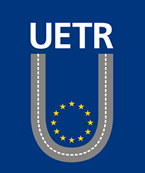21 Dec UETR statement on late payment and crisis
Late payment in the EU is having a profound and detrimental effects on road transport SMEs, exerting a significant strain on their operational efficiency and financial stability. Timely payment is essential for these companies to meet their day-to-day expenses, such as fuel costs, maintenance, and personnel salaries. Delays in payment can disrupt cash flow, impeding the ability to maintain and upgrade the fleet, leading to potential safety risks and decreased overall reliability.
Furthermore, late payments can strain relationships between road transport companies and their suppliers, including fuel providers and maintenance services, potentially resulting in a downgrade of services or even disruptions in critical support. This domino effect can create a ripple impact on the entire supply chain, affecting the timely delivery of goods and services across various industries.
The financial stress induced by late payments can hinder road transport companies from making necessary investments in technology upgrades for the green transition. Additionally, it may limit their capacity to attract and retain skilled drivers, exacerbating the existing challenges associated with driver shortages in the industry.
The proposal for EU Regulation on combating late payment in commercial transactions (COM(2023) 533 final) presents a significant opportunity to address and alleviate some of the persistent challenges faced by small businesses. To fully realize these opportunities, it is essential that the regulation is well-designed, effectively enforced, and accompanied by appropriate support mechanisms. Additionally, stakeholder education and awareness campaigns can play a vital role in ensuring the successful implementation of the regulation.
More specifically, UETR supports a strict payment period of 30 days since the receipt of goods or the provision of services and not from the date of the receipt of the invoice.
Moreover, Member States with stricter and road transport-specific rules already into force must be able to continue applying them (e.g. heavy fines, listing of non-payers and anonymous reporting of bad payers to avoid business retaliation and reprisals) .
Road transport SMEs in Europe are facing a multifaceted crisis that demands urgent attention and collaborative solutions.
The escalating fuel prices exert a considerable financial burden on road transport companies, increasing the operational expenses and disrupting budgetary planning.
Moreover, the shortage of drivers further compounds the crisis. The inability to attract and retain qualified drivers not only affects the immediate operational capacity of road transport companies but also poses long-term risks to the industry’s sustainability and growth and to Europe’s real economy and society.
Finally, regulatory complexities and rapidly evolving environmental legislation present a challenge for companies to adapt their fleets and operations to comply with the latest regulations. This transition requires significant investments in new technologies and infrastructure, further straining the financial resources of road transport companies.
Addressing the crisis facing road transport companies in Europe requires a coordinated and proactive approach to ensure the resilience and viability of this vital sector.





Sorry, the comment form is closed at this time.